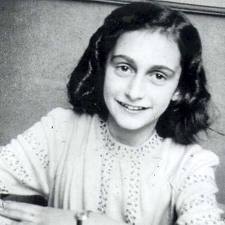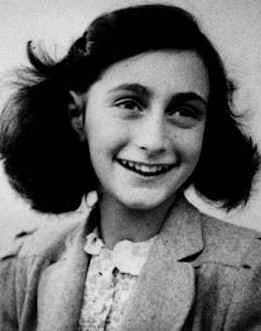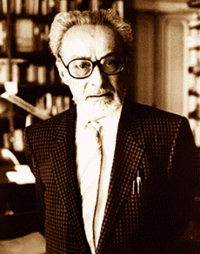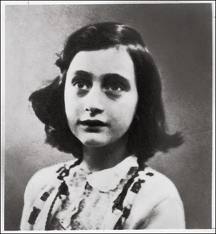Dear Anne Frank…
By Nir Menussi: May 31, 2012: Category Inspirations, Thought Figures
“I hope I will be able to confide everything to you, as I have never been able to confide in anyone, and I hope you will be a great source of comfort and support.”
 These are the opening words of the most famous personal diary in the world, the diary of Anne Frank. The Diary of a Young Girl bears testimony to the two years in which Anne, together with her parents, her sister and four other Jews hid in the secret annex of a Dutch family in Amsterdam, before the Nazis tracked them down and deported them to the concentration camps. It describes the friction-packed, tense and demanding daily life of eight people living together in a small, hidden confine, under the constant threat of being captured, together with the deliberations and inner conflicts of a teenage girl.
These are the opening words of the most famous personal diary in the world, the diary of Anne Frank. The Diary of a Young Girl bears testimony to the two years in which Anne, together with her parents, her sister and four other Jews hid in the secret annex of a Dutch family in Amsterdam, before the Nazis tracked them down and deported them to the concentration camps. It describes the friction-packed, tense and demanding daily life of eight people living together in a small, hidden confine, under the constant threat of being captured, together with the deliberations and inner conflicts of a teenage girl.
Anne Frank’s diary is the best selling diary in the world; the best selling book ever written by a Jewish woman; and the best selling book ever written by a person under the age of thirty. Thirty-three million copies have been sold to date, and it has been translated into seventy-five languages, making it one of the most translated books in the world. In addition, it is the most widely read book on the Holocaust in the world. For many people, it has been the only window into the Jews’ horrific ordeals during the Second World War. Every year half a million people visit the house where Anne Frank hid, and people from all over the world still write her letters as if she was a living person. Every one of these facts is amazing in itself, but even more so when one remembers that the Diary of a Young Girl was written by a girl less than fifteen years old.
Anne Frank grew up in an assimilated Jewish family that possessed little or no connection to observant Judaism. Nevertheless, by Divine Providence she was given the privilege to represent the entire Jewish nation to millions of people all over the world. The Ba’al Shem Tov, the founder of the Chassidic movement, taught that everything in the world should be perceived through the prism of faith and the wisdom of the Torah. Let us see what inspiration we may glean by contemplating Anne Frank’s story in this way.
A Diary as Prayer
Let’s reread the opening lines of Anne Frank’s diary: “I hope I will be able to confide everything to you, as I have never been able to confide in anyone, and I hope you will be a great source of comfort and support.”
Anne Frank wrote these words to her own diary, almost as if they were intended for the ear of a living confidante. In fact, in order to emphasize just how much her diary is like a real friend to her, she later named her diary “Kitty.” In some of the theatrical productions of the book, this idea has even been developed to the extent that “Kitty” has become an actual character, who watches the play’s events from the side, narrating Anne’s inner thoughts to the audience, without any of the other characters being aware of her.
The idea of writing or speaking to an invisible confidante obviously reminds us of prayer. Indeed, the opening words of Anne’s diary sound like an appeal that any believer in the power a prayer might make to God. The Creator is omniscient and knows everything that is going on inside us, better than we know ourselves. This is why some identify the need to pray as a desire to get in touch with our innermost selves. Obviously, fully identifying God with our inner being is self-contradictory, and detaches us from our essential point of faith in God as creator. However, this idea does have a kernel of truth in it: it is rooted in the belief that God is present at the core of our souls. We can therefore approach God with the same directness and simplicity with which we may write a diary.
So, the first thing that we learn from considering Anne Frank from the vantage point of faith is that writing a personal diary, particularly during times of stress and suffering, is analogous to pouring out our hearts to God in prayer. A verse captures this stance: “The prayer of a pauper as he shrouds himself and pours his words out before God” (Psalms 102:1). At times, when we feel as powerless as a pauper, we should freely pour our hearts out before God, as if we were writing our personal diary.
An exalted soul
 The fact that Anne Frank merited to represent the entire Jewish nation to millions around the world teaches us that her young soul possessed an extraordinary quality, and was given an important mission. The writing talent that characterized her from a young age; the diary that she received just a month before going into hiding; the amazing story of the diary’s survival and of her father who published it—these all serve as a dynamic backdrop serving to reveal the light of her soul to the world, illuminating the hearts of so many.
The fact that Anne Frank merited to represent the entire Jewish nation to millions around the world teaches us that her young soul possessed an extraordinary quality, and was given an important mission. The writing talent that characterized her from a young age; the diary that she received just a month before going into hiding; the amazing story of the diary’s survival and of her father who published it—these all serve as a dynamic backdrop serving to reveal the light of her soul to the world, illuminating the hearts of so many.
After the diary was published and received unprecedented success, challenges to its authenticity arose. A number of Holocaust-deniers began to claim that it had not been written by Anne Frank. Some claimed that its author was Meir Levin, the journalist who published the diary in America and wrote the first script based on it, while others pointed a finger at Anne’s father, Otto Frank, claiming he wrote it in order to reinforce the “lie” of the Holocaust and make a fortune on his daughter’s account. Some even went so far as to claim that Anne Frank herself had never existed. Otto Frank fought legal battles with some of these people until his passing in 1980.
Though these claims are nothing more than provocations by anti-semites, there is something to be learnt from them. Strange as it may sound, when people claim that you don’t exist, or that what you are saying is unreliable, that may be a sign of your greatness. The Ba’al Shem Tov himself, the founder of the entire Chassidic movement and one of the greatest figures in modern Jewish history, has suffered a similar fate at the hands of individuals considered bona fide historians, who claim he existed only in the myriad legends about him.
Another example regards the Biblical character of Job, the most famous sufferer in the world. In the Talmud a wide range of opinions, varying from one extreme to the other, have been expressed regarding his character and his life. Was he Jewish? In what era did he live? Who was his wife? Did he actually exist or is his story merely a parable? It seems that the question of one’s existence is not only related to greatness, but for some mysterious reason also to suffering. In fact, according to one opinion, Job’s wife was none other than Dinah, Jacob’s daughter, who also suffered great anguish in her life.
Souls whose existence has been immersed in doubt are rooted, we may say, at a very lofty level of Divinity itself—whose presence in our lives depends, more than anything else, on our belief or disbelief in it. Indeed, in Chassidic terminology, the power of faith in the soul has its source in the hidden and elevated level of Divinity called radla, an acronym for “the head that is unknown [to others] and unknowing [of itelf].” One can thus suggest that Anne Frank’s soul is rooted at this exalted level.
A Diary of Repentance
 The author Primo Levi, an Auschwitz survivor whose writings also expanded public awareness of the Holocaust, once said,
The author Primo Levi, an Auschwitz survivor whose writings also expanded public awareness of the Holocaust, once said,
One single Anne Frank moves us more than the countless others who suffered just as she did but whose faces have remained in the shadows. Perhaps it is better that way; if we were capable of taking in all the suffering of all those people, we would not be able to live.
Levi’s words are reminiscent of a fundamental Kabbalistic idea called “the contraction” (tzimtzum, in Hebrew). According to this idea, God wanted to create the world and illuminate it with His infinite light, but He knew that a finite world would not be capable of containing His light without shattering into fragments. God therefore contracted His light into one thin ray and projected it into the world. This ray of light appears in our world in the form of the Torah, in the words of the prophets, and in the spark of Divinity that is present in every one of us.
Primo Levi spoke of contracting the unfathomable suffering of millions through one small window, the story of fifteen years old Anne Frank. Her eyes serve as a peephole through which people can encounter the horrors of the Holocaust without shattering. Expressing this idea in a positive way, we can say that, if the personal story of one individual is capable of revealing great darkness to the world, it must also be capable of revealing great light.
We live in a generation in which many people like Anne Frank and her family are completely detached from the roots of their Jewish faith and from spirituality in general. Such people often begin to wake up in their young adulthood and find their way back to the true origin of their souls. Similarly, people who grew up in observant Jewish homes, yet for various reasons became estranged from their tradition, become reacquainted with it as they grow older. These precious, rare and fragile moments of teshuvah—arousal and return to God—in which a person reveals his innermost essence, are in fact the most profound experience of the human soul.
The experience of teshuvah is also no less than Divine revelation. In Deuteronomy (30:3) it says, “and God your God shall return with your return.” In his commentary on the verse, Rashi asks, “It should have said ‘shall restore your return.’” Why then did the verse say “return”, a phrase that seems to suggest God Himself will also repent? Rashi explains that, “the day of gathering of the exiles is so tremendous and difficult, that God Himself needs to actually hold each individual’s hand, as it were, to excise him from his place.” In the ingathering of the souls of Israel to their origins, God Himself as it were returns with them, accompanying each soul on its way back home.
In our generation, anyone who has had the privilege of experiencing such a spiritual awakening should try and express it in writing or transmit it verbally, so that other people get a sense of it too, to “taste and see that God is good” (Psalms 34:9). Anne Frank’s diary gave millions a glimpse into the terrible ordeals of the Jews, and into her faith in life despite them; similarly, accounts of a person’s return to their Jewish roots can transmit to others a taste of the faith in the Divine light that lies beyond life, and that infuses life with purpose and meaning.
Writing a personal account of one’s return to God is unlike any other form of journal writing. When writing about a Divine experience, the writer must find a way to express the inexpressible. In this type of writing, the words left unsaid can be even more significant than those written down. This is the subtlest of arts, but we must not be deterred from attempting to undertake it. Just as truly heartfelt words penetrate the soul of those who read them, so does the truly heartfelt silence that breathes between the words.
Hidden and Revealed
When Anne Frank began writing her journal, she never intended for others to read it. This is why she allowed herself to write the true names of the people with whom she lived in hiding, even though she wrote personal information about them. Yet, one day she heard a radio address by one of the exiled members of the Dutch government residing in London, announcing that after the war he planned on publishing the reports and journals of Dutch citizens who had suffered during the Nazi occupation of Holland. Inspired by his speech, Anne decided that when she was free, she would publish her diary. It was then that she began to edit her journal and to change the names of the tenants in the annex in order to guard their privacy.
This teaches us an important fact about personal writing. Our emotions should be expressed in writing with the utmost honesty, exposing our inner feelings in a way that we would never reveal to anyone in the world. Even if we know that one day, someone may read our diary, or even if we ourselves intend to publish it in the future, we should write it as if no one else is ever meant to see it.
Yet afterwards, we must ask ourselves: could what we have written be of benefit to anyone else? Could our candid words help others make a significant change in their lives or bring them closer to God? Could our words bless the world? If the answer is yes, then we must make an act of self-sacrifice and—after the necessary editing—strive to have our work published, even though it contains what is most intimate to us.
The transition from writing one’s intimate thoughts to publishing them can be understood more profoundly in light of a deep and mysterious statement made by the sages in the Talmud. The sages state that God has “outer chambers” and “inner chambers.” In God’s outer chambers He demonstrates His joy, as described in the verse, “might and joy are in His place” (I Chronicles 16:27); in His inner chambers, however, we find that, “In secrecy, My soul weeps” (Jeremiah 13:17)—He cries in secret over the exile and torment of the Jewish people. A similar duality holds regarding publishing spiritual journals: intimate thoughts written in a private state of tears, should be published so as to turn them into a source of empowerment and joy for others (just as we are comforted by learning God weeps over us).
Letters to Anne
 We mentioned above that many people all over the world continue to write Anne Frank letters. This is true especially regarding girls around the age that Anne was when writing her diary. The fact that she succeeded in touching their hearts from such a great distance of time and space teaches us an important lesson about the power of the soul to rise above the limitations of reality and shine into the distance. If we are so inspired by the words of someone who has long since passed away, so much so that we feel a desire to reply to her in person, then in a certain way, her soul never left us. She is still here among us, inspiring us to think and feel.
We mentioned above that many people all over the world continue to write Anne Frank letters. This is true especially regarding girls around the age that Anne was when writing her diary. The fact that she succeeded in touching their hearts from such a great distance of time and space teaches us an important lesson about the power of the soul to rise above the limitations of reality and shine into the distance. If we are so inspired by the words of someone who has long since passed away, so much so that we feel a desire to reply to her in person, then in a certain way, her soul never left us. She is still here among us, inspiring us to think and feel.
Anne Frank died at the age of 16. If she were still alive today, she would be 83 years old. We can try to imagine her as an elderly lady, perhaps somewhat bent with age, but with that same glint in her eyes and energetic personality that is so familiar to us from her photographs and diary. But we have trouble doing so because, in our mind’s eye, Anne, like others who have died in their youth, remains forever young. Death has a way of freezing people in their age and form forever. Indeed, according to Kabbalah, Judaism’s esoteric wisdom, at the time of the resurrection of the dead, the deceased will rise at the same age they were when they passed away, as if not even a day had passed.
But there is another side to this concept. There is a custom to continue to commemorate birthdays even many years after a person has passed away. For example, Chassidim commonly read the chapter of Psalms corresponding to the age of their deceased Rebbe, as if he continues to mature in years. According to this custom, although the deceased do not grow older, they do grow up, continuing to mature with time. Combining this concept with the idea that the dead shall be reincarnated in their original form, we may conclude that after death the soul both grows and does not grow, rests and does not rest, at the same time.
The concept of resurrection is difficult to conceive, as Maimonides has stated regarding the entire redemption process, “We will not know how it will be until it takes place.” Yet, we can dare to imagine Anne Frank returning to us as a wise old lady in the form of a young girl. This image could serve as the perfect metaphor for our soul: it should be wise and old on the inside, and yet retain every drop of its youthful vitality on the outside. (This image matches beautifully the way Chassidut describes the desired Mashiach: he will be composed of the soul of the elderly Moses within the body of the younger King David).
If you had the opportunity to write to Anne Frank, what would you write? What would you like to tell her about your life, here and now? Anne Frank’s diary ought to be on the reading list for every child her age. Pupils should be encouraged to write letters to her, and the best ones should be published. Anne Frank’s soul should continue to illuminate our dark world and inspire us to express our innermost thoughts and experiences, as she so effectively articulated hers.
The soul of Mashiach will ultimately encourage every one of us to joyfully articulate our innermost genuine being in all its beauty, illuminating the entire world with Divinity. We pray that he come soon.
Written by Nir Menussi | Translated by Rachel Gordon
Based upon a teaching by Rabbi Yitzchak Ginsburgh
Dear Anne Frank… ,























;)
;)
;)
;)
;)
;)
;)
;)
;)
;)
